Published
- 02:00 am
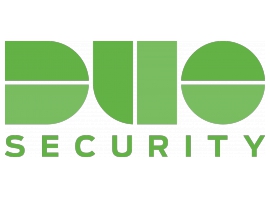
Duo Security, one of the world's fastest growing cybersecurity providers, today announced the launch of its Managed Service Provider (MSP) and invitation-only Security Solution Provider programme in the United Kingdom. Duo's formal partner programme, which launched in the U.S. earlier this year, expands to the UK as the company has quadrupled its overall EMEA customer count from 450 to nearly 1,900 in the past two years.
Duo helps defend organizations against breaches by making security easy and effective. Anchored by its flagship two-factor authentication (2FA) app, Duo's cloud-based "Trusted Access" product offering verifies the identity of users and the health of their devices before granting them access to data and applications - helping prevent breaches and account takeover.
Unlike traditional security vendor programmes with tiered levels, Duo now offers a bespoke programme and enablement plans for security-centric UK-based solution providers invited to join the programme. The company expects more than half of its UK-based business to come through security solution provider and MSP partners as the programme progresses.
"Duo removes the pricing and implementation complexity of traditional partner models, allowing partners to be more profitable while providing their customers what they need to protect their data," said Matt Smith, Vice President of Worldwide Channels & Business Development. "Our comprehensive offering combined with our partner's expertise provides organizations a complete trusted access solution to protect their users, devices and applications without the typical complexity of most security products."
Duo's UK security solution provider business is led by EMEA Partner Manager Fiona Doak, a recent Duo hire with more than 26 years of experience in cybersecurity and technology. Doak previously held positions at RSA, Juniper Network, F5 Networks and WhiteHat Security.
"Duo brings a targeted, hyper-tailored approach to meeting the specific needs of partners and their customers," said Doak. "Each of the security partners we select has a strong practice with dedicated security architects and consultants, meaning the service they provide their customers is among the best in the industry."
Duo's UK Security Solution Provider programme already boasts partners such as Teneo, Saepio and Infosec Partners, and continues to expand with a select group of security-centric solution providers.
"It's so important today that security processes can be easily adopted and viewed by employees as business enablers, rather than a drag on productivity," said Marc Sollars, Chief Technology Officer at Teneo. "Our partnership with Duo means our customers can embed security much deeper into their company culture, because Duo's technology is such a pleasure to use. At Teneo, we've innovated around Duo's leading authentication technology to deliver a quick-to-implement and easy-to-use solution 'as a Service,' making security even simpler and intuitive for IT teams and employees. I deployed Duo in minutes via my own smartphone and was so amazed by how simple and effective it was, we immediately rolled it out across our own organization."
"The world's leading enterprises trust us to provide them sound advice and product recommendations, which is why we make sure each of our partners is of the highest caliber," said Andrew Pitt, Director at Saepio. "Duo's stellar reputation and proven track record of securing customers with an easy to use and effective product make it one of our hallmark product offerings for clients."
Related News

Maurizio Canton
CTO EMEA at TIBCO Software
The explosion in big data, IoT devices and cloud technology has broadened the digital landscape, but the flipside is the soaring number of endpoints and challenges that arise from their management. see more
- 08:00 am
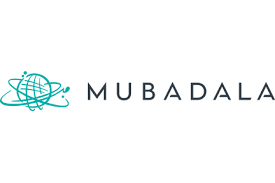
Mubadala Investment Company, the Abu Dhabi Government owned company, has acquired Verno Capital's private equity advisory unit to strengthen its internal investment and asset management capability across Russia and the CIS region.
The transaction sees a number of Verno employees transfer to Mubadala, who will now have a complete focus on Mubadala's Russian portfolio and investment pipeline. This comes as Mubadala seeks to grow its Russia investment portfolio across multiple sectors.
Mubadala has been a major shareholder and investor in Verno Capital since 2010, deploying capital across Verno's funds as well as using its investment advisory unit's services to support transactions with other partners in the region.
Mubadala will continue to be a long-term investor and major shareholder in Verno, which currently has over US $1bn in discretionary assets under management across public and private equity, and continues to strengthen its franchise across its core geographies.
About Mubadala Investment Company
Mubadala is a pioneering global investor, deploying capital with integrity and ingenuity to accelerate economic growth for the long-term benefit of Abu Dhabi. As Abu Dhabi's leading strategic investment company, Mubadala is active in 13 sectors and more than 30 countries around the world, creating lasting value for our shareholder, the Government of Abu Dhabi.
Our portfolio includes the development of global industrial champions in sectors such as aerospace, ICT, semiconductors, metals and mining and renewable energy, utilities, and the management of diverse financial holdings. We build on legacy expertise in oil and gas to invest across the hydrocarbon spectrum, and enhance the UAE's growth potential through investments in healthcare, real estate and defense services. Our investment approach prioritizes partnership with best-in-class organizations and a commitment to the highest standards of governance.
Related News
- 03:00 am

Intellect Global Transaction Banking (iGTB), the transaction banking and technology specialist, has launched two whitepapers outlining its vision of “contextual banking” – which sees banks use contextual data to provide clients with automatic and tailored recommendations via a digital platform. The papers argue such an approach will bring customer service to unprecedented highs – providing simple, one-click solutions for cash management and payments optimization – while also cutting bank costs and opening up new revenue streams.
Commenting on The contextual revolution: Cash Management’s answer to Amazon and Siri, and Payments done properly: Contextuality holds the key to operational efficiency, Manish Maakan, CEO of iGTB, says: “We think most banks ask too much of their clients – leaving them to research and understand the vast array of banking products at their disposal and determine which is best for their business in each new situation. No other industry expects so much of its clients. Contextual banking is about reducing that workload – and making transaction banking an exemplar, rather than a cautionary tale, of customer service.”
Contextual banking uses data already available to banks – such as client invoices and current and historical trend data – to understand what clients are trying to achieve and what upcoming issues they will likely face. Based on this understanding, the contextual banking system recommends optimal actions for the client – ranging from the suggesting best payment method for fulfilling a specific invoice to proposing a supply chain finance program to improve interactions with regular suppliers.
“Imagine a bank client needs to fulfil an invoice,” says Michel Jacobs, Global Head of Sales and Head of Digital & Payments at iGTB. “The contextual banking system will notify the client that a payment is due, identify the purpose of the payment – whether it’s to pay salaries, suppliers, or insurance premiums – and recommend the optimal means of paying based on various factors, including the need for speed, revocability, risk mitigation and more.”
Contextual banking covers more than just payment execution, however. It facilitates the entire orchestration of a corporate’s finances. For example, the contextual system can identify accounts with an upcoming shortfall or surplus of funds, and recommend a solution, such as an inter-company loan or short-term investment.
Contextual banking has been designed with the bank client in mind, but it’s also engineered to meet banks’ own needs. Aside from driving customer loyalty with an unprecedentedly high level of service, its all-digital approach will also lead to sky-high rates of straight-through processing.
Maakan concludes: “Best of all, contextual banking can generate new revenue streams by recommending optimal products that clients aren’t currently paying for. This is the perfect solution to banks’ long-term struggle to improve cross-selling rates – enabling them to sell products at the exact moment they are needed. It happens automatically, so no opportunities are missed, and it carries the authority of an unbiased and intelligent algorithm – meaning no false leads. Contextual banking is exactly what banks need as they search for a way to improve customer services, cut costs and grow revenue.”
Related News
- 03:00 am
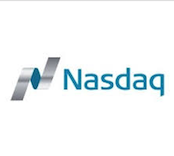
The Market Technology business of Nasdaq has won 'Best Central Counterparty Clearing Support Product of the Year' awarded by Risk.net. The winning entry focused on the Nasdaq Financial Framework. The solution, originally launched in 2016, incorporates the world's leading multi-asset and real-time clearing, settlement and risk management. It represents a harmonized approach to delivering robust post-trade capabilities in an open, agile environment.
"We are thrilled to have won this prestigious award by Risk.net," said Lars Ottersgård, Executive Vice President and Head of Market Technology, Nasdaq. "This recognition is a true testament to our technology and product teams who have relentlessly worked to evolve our solutions over the past year. Post-trade technology has now become one of-if not the most-integral and complex parts of market infrastructure. We look forward to continuing to innovate in this space and pushing the boundaries of how post-trade technology enhances and strengthens the capital markets."
Nasdaq's Post-Trade Solution:
- Enables clearinghouses to handle the full-range of post-trade functions (clearing, settlement, and depository, including risk and collateral management) across multiple asset classes, covering securities, exchange-traded derivatives and over-the-counter derivatives across equities, fixed income, currencies and commodities;
- Improves operational efficiency for both the clearinghouse, its market participants and end-investors;
- Enhances capital and collateral efficiencies for its market participants, including end-investors;
- Improves and differentiates the customer experience, interaction and use of its services;
- Adopts best-in-class international practices within a robust regulatory framework;
- Ensures that the Nasdaq platform is prepared for increasing cross-border trading programs;
- Supports new product and service opportunities within and contiguous to the post-trade value chain and enable clearinghouses to pursue these; and,
- Allows clearinghouses to take advantage of the emergence of new financial technologies such as distributed ledgers based on blockchain technology, and help bring them to market quickly in areas where they make sense.
Nasdaq's market infrastructure technologies, including trading, real-time risk, index, clearing, CSD and market surveillance systems are operated in more than 100 marketplaces, regulators, clearinghouses and central securities depositories across the Americas, Europe, Asia, Australia, Africa, the Middle East and the Caribbean.
Related News
- 01:00 am
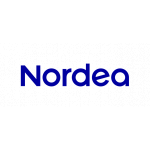
Nordea launches the first Nordic bank service via Facebook Messenger. Powered by Nets, it initially allows for payment of Norwegian bills via an e-invoice in Facebook Messenger – anytime and anywhere.
“Paying bills has never been a fun task,” says John Sætre, Head of Consumer Market Services, Nordea Norway. “Now, we are making it very easy for our customers to pay their bills via a platform that many of them are already active on.”
The service is fully automated and the payment is initiated via an online dialogue with a chatbot in Facebook Messenger.
Making payments in Facebook Messenger is a secure solution. Customers first enroll via their Bank-ID and afterwards use the PIN they have created for mobile banking. Users can easily confirm, view or change their outstanding e-invoices in Facebook Messenger too.
“This is a new way for customers to pay, and if customers respond positively it will be natural for us develop this further,” adds John Sætre. “With this service, Nordea wants to make banking easier for customers. Now, they can pay their e-invoices at anytime and from anywhere, without leaving their favourite social media platform.”
This is a new channel and opportunity and, as before, customers can still handle their e-invoices via their mobile and online banking applications- whichever they prefer.
“To contribute to the continued success and development of our e-invoicing service, it is important to us that we are available on all platforms,” adds Tom Scharning, Senior Vice President, Nets. “We continually work to develop our solutions so they are available on the platforms where the consumers are.”
Related News
- 07:00 am
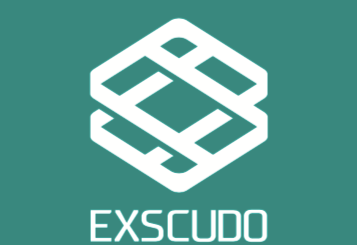
EON blockchain is a hybrid system without any bottlenecks. It is safe, resilient, flexible, scalable with speed of client-server solutions. Due to all these features it can be applied in many industries and solve several problems. Three case studies listed further are representative.
Case #1: Taxation. Current tax collecting system is generally outdated. Fraud, errors, bankruptcies and tax avoidance result in VAT gap. In 2015 the European Commission reported a VAT gap of 151.5 BILLION , it means a loss of 12% of the total expected VAT. Besides, people spend more and more time on preparing and paying taxes. According to the World bank, in 2016 an average person spent 218 hours on it, while in 2005 the figure was 196 hours. Taxation system based on EON blockchain can make tax collecting more effective. Most of workflow is done automatically and human factor is excluded, therefore errors, fraud and evasion are not possible. It is a win-win solution: although people cannot use grey taxation schemes, they do not need to worry about possible errors and spend hours paying taxes, and regulators enjoy tax collection at lower cost.
Case#2 Healthcare. There are three major issues in healthcare industry that EON blockchain can solve: medical data storage, costs and security. Medical data is a very sensitive information, and it is important to store it properly. Currently, all the patient data is stored in local databases with few possibilities of sharing it between multiple organizations. Medical histories are often lost or forged, and the whole system of storage lacks transparency. Security is not less important here. Recently Health Service of Great Britain underwent a massive cyber attack. In result patient records were made unavailable, connections between computers and medical equipment were brought down, operations cancelled and appointment schedules, internal phone lines and emails were rendered inaccessible. Besides all that healthcare is losing billions on unnecessary services, excessive administrative costs and fraud. The global average loss from fraud rate from 1997 to 2016 is 5.58%, which is equal to $4.39 trillion. This sum is more than two-thirds greater than the UK’s entire GDP and more than twice as much as the sum which Europe spent on healthcare in 2014. Administrative costs generally vary from 12 to 25 percent of the whole hospital spending.
A decentralized system of patient data storage is a solution to all these problems. As data is not stored on one server problems which usually appear when server fails are removed. Blockchain provides the highest level of security, and EON flexibility allows to manage properly even the most sensitive data. All accesses in the system are personalized and there are different levels of access to patient data for healthcare organizations, patients and regulators. Privacy of access is mathematically provable. Most of the processes in the system will proceed automatically, it means that services and maintenance costs will be reduced dramatically. Due to EON blockchain transparency fraud will not be possible and human factor will be excluded.
Case#3 Marketing and Client Loyalty Programs. Nowadays every brand has its own client loyalty program, with its own scheme and authorization method. Therefore, users have lots of different cards, most of which they never use. Not more than 20% of all the liability points are actually being used. A unified decentralized system of client loyalty programs based on EON is eager to simplify users’ life and helps brands to create engagement system. Each brand has its own loyalty program and issues its own tokens, having access only to its client’s information. Several brands can collaborate developing multi brand loyalty programs of different levels of complexity. Although clients data is kept private and this privacy is mathematically provable, brands have wide opportunities for analysis. They can segment the generalized impersonal data about their customers and provide them with personalized offers. At the same time all the users have common identificator and have access to all the clients loyalty programs they participate in via their personal account.
Related News
- 03:00 am
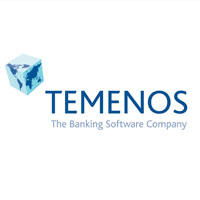
Last night at its Meet the MarketPlace event in Luxembourg, Temenos (SIX: TEMN) announced the launch of two new providers onto MarketPlace, its platform for facilitating the exchange of value between fintech providers and financial institutions.
The two new MarketPlace members are Callsign, the leading artificial intelligence-based authentication platform for financial institutions, and Limitless, a micro-investment and micro-savings app offered as a white-labelled solution to universal, retail and private banks across the world.
The announcement was made to coincide with the latest Meet the MarketPlace event, held this time in Luxembourg. At the event, which provided the latest news and developments about MarketPlace, Callsign and Limitless presented their solutions alongside other MarketPlace providers EdgeLab, Unblu, Metaco, EFS Technology and Blue Code. The event was attended by over 50 people drawn from more than 15 Temenos clients in Luxembourg.
Commenting on the news, Ben Robinson, Chief Strategy Officer at Temenos, said: “Our aim with the MarketPlace is to find and onboard the very best fintech firms, those that bring innovative and value-added solutions to meet our customers’ needs. Limitless is tackling the issue of how banks can build engagement with younger generations and get them to save for retirement while Callsign is allowing banks to offer the very best online security without sacrificing user experience. As with our other providers, CallSign and Limitless are integrated with the Temenos platform, meaning that as of now our customers can securely and quickly acquire these solutions.”
Sara Kolinska, CEO of Limitless, added, “Being selected for the Temenos MarketPlace is a great endorsement, as the company only allows the best fintech providers onto its store. Limitless has a simple purpose: to get young people to start investing. It does so by allowing people to contribute small amounts on every transaction, which soon builds up. And, for banks, it provides a way to engage with millennials, get data that allows for better credit scoring and cross-selling financial and non-financial products and services.”
Paul Anderson, Head of Strategic Alliances at CallSign, commented, “Banking is an industry that relies heavily on a single intangible: trust. Instead of just offering standalone security such as one time password tokens which add friction, or passwords and pin numbers that can be easily compromised, at CallSign we use three meta metrics: device, location and behaviour, providing banks with Intelligence Driven Authentication™. Correlating data from across all three metrics we can pick out truly suspicious activity without adding friction and thereby maintain a good customer experience. This is a revolutionary approach and we are very excited to bring it to Temenos customers through the MarketPlace.”
Related News
- 02:00 am
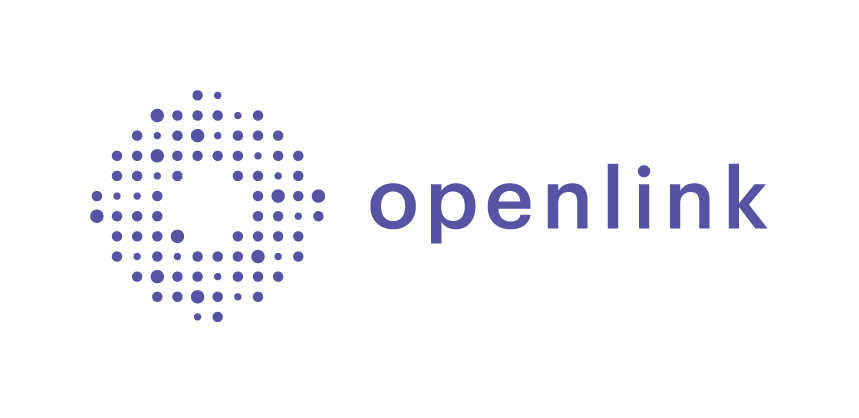
Openlink, the global leader in trading, treasury and risk management solutions for the energy, commodities, corporate and financial services industries, has topped the Risk.net Market Technology Awards for the sixth year running. The vendor once again came first in the Commodities Trading Systems and Commodities Pricing and Analytics categories, and was also awarded top prize in the new support and implementation category.
The longest-running of their kind, the Risk.net awards are renowned as the most prestigious for firms and individuals in their specific markets. The newly created Market Technology Awards replace the Risk Technology Rankings. Previously decided by a market survey, the rankings have been replaced with a judging panel this year.
Rich Grossi, CEO at Openlink said: “Our continued success in the Commodities Trading Systems and Commodities Pricing and Analytics categories cements our proven reputation in providing solutions to our clients that help them create one source of the truth to deliver pertinent analysis and insights.
While it’s important to create great software, a good technology provider ensures that its clients don’t have to go it alone. This is why we partner with our clients to mitigate systemic risk and capitalise on unforeseen value. To be recognised by Risk.net for the sixth straight year reflects our commitment to support and implementation, as well as our ability to innovate with cloud.”
In 2018, Openlink plans to build on this success through its Openlink Cloud Platform and TRMS solutions – which will provide top quality insights to customers as they adjust to their changing technology requirements.
Representing Openlink at the Ceremony to accept the award was Bernard Delahaye, Chief Revenue Officer, EMEA. The wins come at the end of another strong year for Openlink, following recognition at the Financial Technologies Forum News Technology Innovation Awards and the 2017 Chartis RiskTech 100 rankings for energy trading risk.
Related News
- 03:00 am
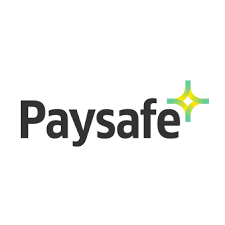
Ethiopian Airlines, one of the largest airlines in Africa, has partnered with Paysafe, a global payments provider, to offer customers the option of paying via Skrill and NETELLER digital wallets.
Ethiopian Airlines (Ethiopian) customers can now use their Skrill and NETELLER digital wallets to book outbound flights from Qatar, United Arab Emirates, Lebanon, Kuwait, Saudi Arabia and Oman via the airline’s website, backed by full chargeback protection and access to customer support in 16 languages, including Arabic.
The partnership between Paysafe and Ethiopian Airlines has been enabled by FloCash Limited, a Pan African payments network that helps partners scale their business and reach the region’s millions of unbanked customers via the use of converging payment technologies.
Paysafe Digital Wallets CEO, Lorenzo Pellegrino said: “Mobile money is reshaping the payments landscape across emerging markets. Digital wallet options such as Skill and NETELLER mean that millions of customers now have access to the online economy, which is a compelling opportunity for businesses in the region. We’re delighted to enable businesses such as Ethiopian Airlines to extend their suite of simple, fast and secure payments options, which is crucial to driving sales through the web.”
“Paysafe is committed to levelling the playing field by empowering both the unbanked, and those who prefer to use cash rather than credit cards, with the ability to participate in the e-economy.”
Available in 200 countries and 18 languages and with over 100 payment options and 40 currencies, Paysafe’s digital wallets, Skrill and NETELLER, provide convenient and simple payment solutions globally. Consumers can upload, withdraw and store funds all through the Paysafe ecosystem.
Ethiopian Airlines is the fastest growing airline in Africa and has become one of the continent’s leading carriers. Ethiopian is a multi-award-winning airline registering an average growth of 25% in the past seven years.









